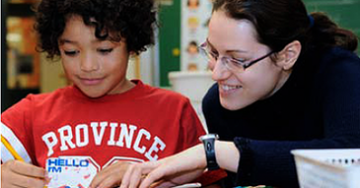The University serves and engages society to enhance economic, social, and cultural well-being.
What can we create together?
Peter Block
UBC exists for the communities it serves: local, provincial, national, and global. An integral part of those communities, the University enters into relationships where decisions about means and ends are made collaboratively, costs and benefits are shared, and learning is reciprocal. Beginning with interest and outreach and moving through engagement and empowerment, UBC recognizes degrees of commitment and nurtures relationships along the full spectrum. With multiple sites and a global reach, UBC dedicates its resources to dialogue and action on issues of public priority. As international acclaim for its community engagement grows, the University honours the time and effort that goes into building respectful community relationships and expands the notion of scholarship to embrace community engagement as both core to the university’s mission and foundational to excellent teaching, learning and research. Community engagement brings the full force of our combined experiences, expertise, and knowledge to bear on the salient questions of our time. Is there anything that, together, we cannot create?
Actions
- Facilitate deliberative public dialogue on issues of public concern and actively invite community participation
- Facilitate engagement of faculty and students in public policy development
Outcomes
- Dialogues on societal issues continue across both campuses through lecture series, seminars and special speakers
- Symposiums, forums and research venues continue to engage the public in discussion on issue that lead to changes in, or a deeper understanding of, public policy
- UBC Okanagan launched UBC’s first Mini-Med public education program, a health education lecture series featuring UBC researchers
Actions
- Complete consultation on community engagement strategy
- Strengthen our understanding of community interests in community service learning and sustaining community partnerships through the UBC Community Learning Initiative and Learning Exchange
- Provide a broad scope of continuing studies programs to support students and life-long learners -Better define and assess “service” as part of the academic mission of the university
- Increase community use of learning, cultural and outdoor venues on UBC’s campuses and sites
- Develop an effective approach to communications, supporting the full engagement of UBC with its communities
- Work with community-based organizations to create a deeper understanding of how social sustainability can be achieved locally and globally
Outcomes
- An approach and operational framework are in place to guide the curation of a community engagement strategy built through ongoing engagement.
- 337 students from the Vancouver campus were involved in community-based placements/projects and learning activities through the Learning Exchange.
- 44% of 4th year graduating undergraduate students reporting that they have participated in a volunteer experience or community service learning while at UBC’s Okanagan campus.
- The UBC Centre for Community Engaged Learning supported over 4,400 student engagements in community based experiential learning on the Vancouver campus and linked student and faculty with over 400 organizations. 492 community service learning participants at UBC Okanagan supported 13 different projects.
- The Community-Based Research Faculty Forum attracted 70+ participants from 11 faculties to discuss community-based research and engaged scholarship at UBC.
- UBC’s Okanagan Campus now has initiated partnerships with the Rotary Centre for the Arts, Accelerate Okanagan, Woodhaven Regional Park. More than 200 public events were hosted by UBC Okanagan faculties.
- Through broad reach digital channels, UBC connects with over 2.6M annual website visitors and over 87K followers across brand-owned social media properties.
- UBC researchers continue to collaborate with community-partners on issues of well-being, access, social justice, equity, diversity and interculturalism, quality of life, conflict resolution and community building.
